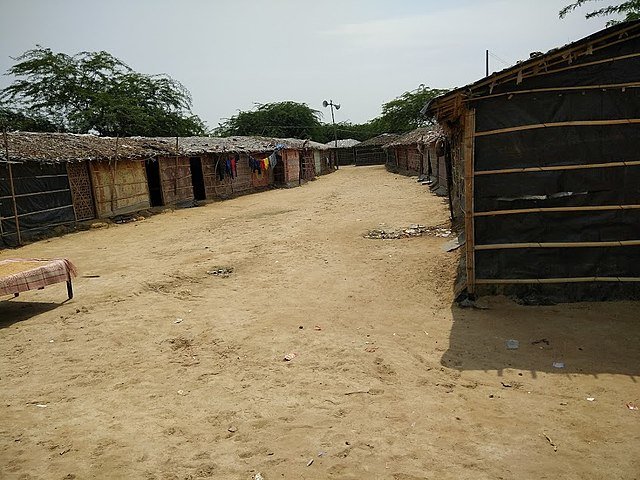In the increasingly overcrowded and desperate Rohingya refugee camps in Bangladesh it is expected that almost 50,000 new babies will be born. To contrast with Australia, that’s roughly the entire population of Bundaberg, Coffs Harbour or Wagga Wagga.
Many of these babies will be the product of rape when the mother’s village was raided in crackdowns by the Myanmar army. All of the babies will be born into disastrous living conditions in ramshackle settlements with a high risk of disease and malnutrition.
Health workers in these refugee camps are now scrambling to try and prepare to give these new babies a chance at survival. Despite best efforts it is predicted that many of these children will die before they reach the age of five.
Four months have passed since attacks by Rohingya militants on Myanmar authorities prompted a brutal backlash by the government, killing, raping and dislocating over half a million Rohingya Muslims. So far nearly 655,000 refugees have cross the border in to apparent safety in Bangladesh only to discover a life of sickness and poverty in overcrowded camps.
There are currently an estimated total of 870,000 Rohingya refugees living in the dilapidated refugee camp, struggling to meet their basic needs. At least 5% of the refugees are pregnant women.
Save the Children’s Rachel Cummings said that it is expected most of these pregnant women will give birth in the tents they have made into their new homes. She went on to say that these home settings were “very sick” and that the lack of clean running water meant that the hygiene conditions were far from adequate for a newborn child.
As the leader of the Save the Children response for Rohingya refugees Ms Cummings said that maternal health was going to be one of the biggest upcoming challenges in the camp. She stated that this was “no place” for children to be born and to grow up.
Ms Cummings said that from the very start of their lives these newborn children will have the “odds stacked against them” by tying to survive in an overcrowded area with scarce access to basis resources.
An added struggle is that the traditionally conservative Muslim Rohingya people prefer for women to have privacy in childbirth. Grandmothers and older women normally act as midwifes but there are few support networks in the camp.
There are some health facilitates at the huge refugee camps but it is a difficult journey for the women. The distances are long, the terrain hilly or muddy from rain and it is dangerous to travel at night time.
Myanmar is expected to take back Rohingya refugees on January 22nd as part of a repatriation agreement that was signed with Bangladesh last year. Earlier in the week officials from Myanmar declared that two reception centres for processing refugees were nearly completed.
Despite the Myanmar government’s declaration that refugees are welcome to return, the reports of harassment, rape and killing by the Myanmar authorities may see some refugees reluctant to return.
These events follow a visit by Pope Francis to Myanmar last year as part of a good will mission while he did not directly criticise the government for the refugee crisis.

